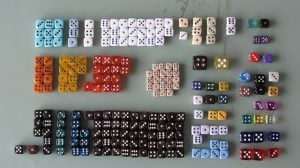
Flickr user Beanbag Amerika
We’ve been talking a lot lately about the different learning styles students have, and how they can find study methods best suited for their style. In this post we’ll shine the spotlight on the logical learner!
Also known as “mathematical learners”, these kinds of students prefer hard data, stats, charts, graphs, numbers, and formulas. These thinkers like to understand how things work, and are great at figuring out patterns and puzzles. Logical thinkers use calculation, reasoning, and deduction to figure out the world around them, and they can put their observational skills and logical minds to work with these study tips.
Don’t Memorize, Understand!
It’s not enough just to memorize a factoid and regurgitate it on a test, if you really want a deeper understanding of the material—seek it out! Do additional research, ask many questions, read carefully in order to “click” with the material rather than just soaking it up. Challenge yourself to understand fully, and you’ll have a better grasp on the material overall.
Avoid Verbatim Note-Taking
When listening to a teacher, don’t write down every single word they say during the lecture. Instead, engage with the lesson by paraphrasing, and by honing in on the key points. You may not need all of the information they give you, so make sure you really dial in on the most important bits while writing notes. Writing notes by hand is also linked to better memorization as well.
Associations
Logical learners can often recall facts, definitions, stats, words, and other important things if they associate it with something. For example, if you’re being tested on geodes you might be able to recollect a geode factoid if you remember “Geodes look like rock candy.” It doesn’t necessarily have to be a logical connection between the two things—you can use a rhyme, or a memory, or an imagery association to help you call back to facts.
Maps and Diagrams
Knowing (and seeing) how things are connected to each other is a big help for logical learners. You can use mind maps, branching trees, diagrams, and timelines to keep track of things and see how they fit as a part of the whole picture. This is particularly helpful for science principals, literature analyses, and more. Plotting out the information can help make sense of a mess.
—
Use College Raptor to discover personalized college matches, cost estimates, acceptance odds, and potential financial aid from schools around the US—all for FREE!






